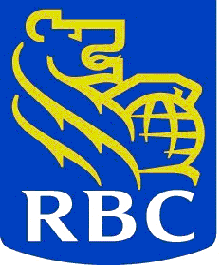 There’s nothing like cute puppies, babies, and vulnerable seniors to pull on the heartstrings. On the opposite end of the spectrum: child molestors, tax collectors and big banks are often on the most despised list.
There’s nothing like cute puppies, babies, and vulnerable seniors to pull on the heartstrings. On the opposite end of the spectrum: child molestors, tax collectors and big banks are often on the most despised list. Bring together a vulnerable grandma who’s been hoaxed, a robber, and a big bad bank, and you’ve got a top news story. Unfortunately for the Royal Bank of Canada (RBC), they’ve become the wolf…err… criminal in this coverage. (wait... isn't that a lion pawing in their logo? I think we're on to something)
But that hasn’t seemed to prompt them into a well-thought out or even existent strategic reactive PR campaign. They’ve been thinking business the whole way, not relationships. Not customer service. Their communications were extremely limited, pretty much non-existent and have not been engaging online communication tools; they barely even acknowledged the incident or the issues surrounding it and that was only after being ‘outted’ by a media outlet.
Here’s the deal:
An 86-year old Canadian grandma was taken by a common fraud scam targeting seniors across North America, commonly referred to as the “grandparent scam”. The bad guy essentially telephones a grandma or grandpa and claims to be their grandson, asking them to send money for an emergency. Victims such as this grandma wire their supposed “grandson” money, in this case which she borrowed against her RBC Visa.
CBC Television ha s positioned it as the bank being the criminal and bringing their lending practices and customer relations into question, as well as the fact that the bank was initially not willing to forgive any of the credit card debt. Grandma sent two registered letters explaining her positions, and the Vancouver police department contacted the bank on Grandma’s behalf declaring her case legit, but nothing changed.
Click here for news clips:
CBC National News clip from April 6, 2010
Click here for news clips:
CBC National News clip from April 6, 2010
It wasn’t until CBC News got involved and began to question the bank did RBC communicate they sent a notice out to inform their staff of the scam, and finally they decided to give Grandma a bit of a break and waive the interest on the outstanding balance; however nothing was specified about the balance itself. They commented on how bad these people out there are who prey on grandmas.
On the RBC website, I can’t seem to find any positioning statements, notices for their clients or education about this scam, FAQ’s, Q&A’s, backgrounders, press releases or any sort of videocast or online social media tool related to this incident.
Their Twitter account has no mention of the incident; there have been no postings since March 29, 2010, which makes me question if they’ve blocked tweets coming in about the incident, and they certainly have not themselves communicated by tweeting about it or trying to provide helpful safe tips for clients or Canadians in general. What’s the point of having a Twitter account if you’re not going to engage with your audiences, defuse the situation a bit, and try to help things along by providing resources and information that can help people in scam situations and prevent more from taking place?
They do not have a Facebook account which is not surprising or expected. But they don’t seem to have their own account on YouTube either. They are obviously not highly engaged with online technology and social media tools and when they do, their strategy is highly controlled and are obviously withdrawing completely during a time of crisis, whether they are in the wrong or not. They are not communicating, period. Not exactly progressive for one of Canada’s largest organisations.




No comments:
Post a Comment